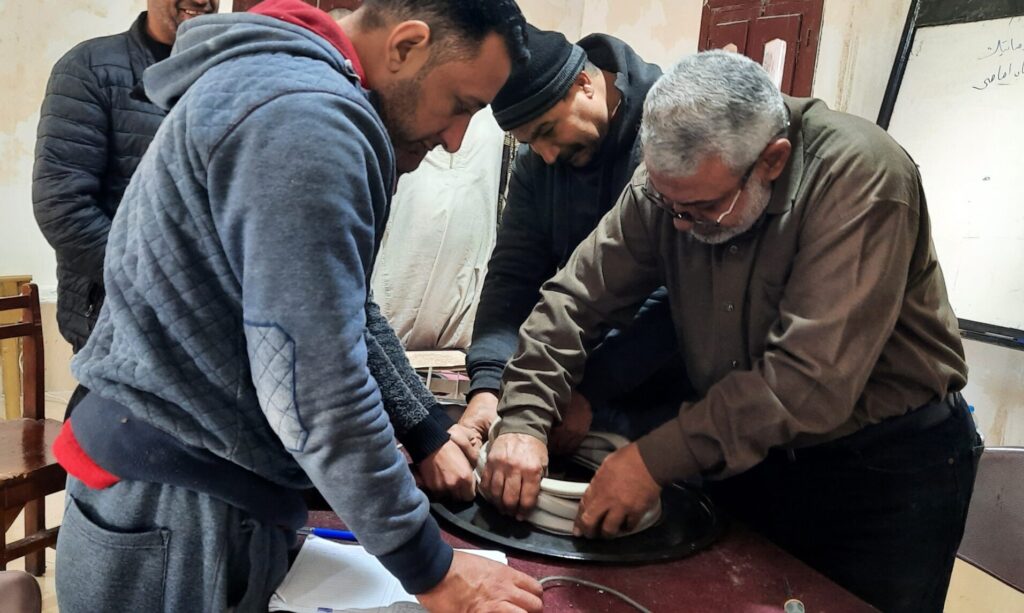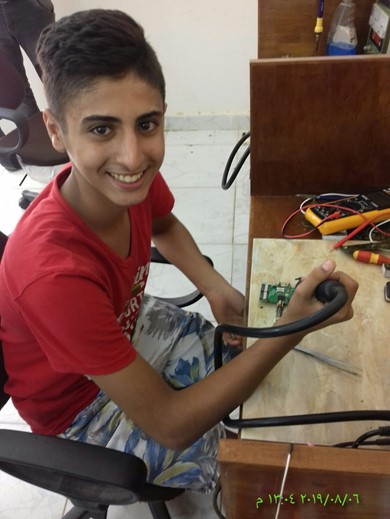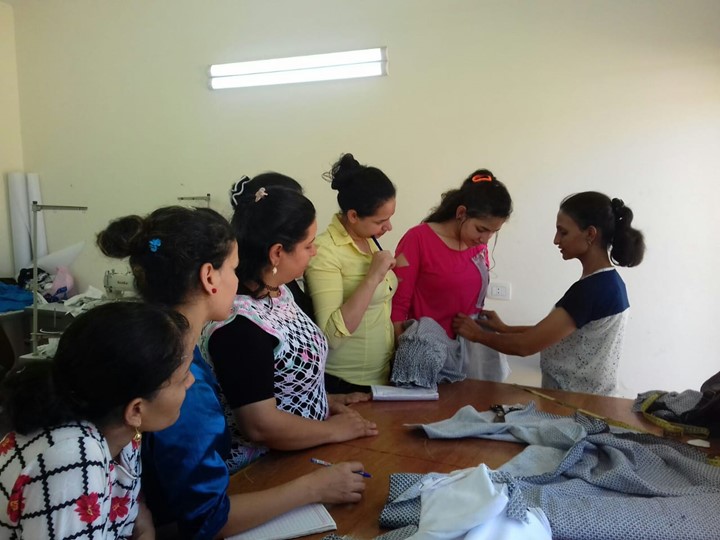Since the age of 12, Abanob, a street child, has been struggling with substance abuse problems, which hindered his ability to finish the education and find a job. Abanob almost forgot his own name, because everyone around him referred to him simply as “the addict”. But thanks to a HANDS-sponsored vocational training program, Abanob was able to transform his life into a story of a second chance. As he described, one of the leaders of the local church who knew and was concerned about him helped Abanob sign up for the vocational training sessions to learn mobile maintenance. After he graduated, Abanob became a much better and healthier version of himself: he not only successfully quit abusing drugs, but he also started to plan for his financial future. Abanob says he wants to open a mobile maintenance shop soon to apply the skills he acquired at the vocational training courses.
Hanan, a young woman from a village in Minya governorate of Upper Egypt received a sewing course in Think and Do’s training center Oasis. Her husband manages to find work two or three times per week, in various informal economy sectors. With his meager income, the essential needs of the family were barely being met, and schooling expenses for children were increasing as well. Hanan realized that she had to help with financial stability and this is why she signed up for the vocational training course. After completing the training, a new hope gave Hanan renewed energy and motivation. The staff of our partner made a regular post training follow up visit and were surprised to learn that she already started a micro enterprise! She formed a group of ten women, and taught them what she had learned in sewing course!

Kasban was a simple man whose life revolved around collecting and trading discarded items that others deemed worthless. He barely made ends meet by hauling old refrigerators, broken washing machines, and other battered appliances to the junkyard, and selling them for meager prices. But then he heard about a HANDS sponsored program offering trainings to teach vocational skills and provide new opportunities for people like him. Intrigued, yet unsure of what to expect, he decided to take a leap of faith and enroll in their appliances maintenance training course.
During the training, Kasban discovered not only the technical skills to repair and restore old refrigerators and washing machines, but also something more profound—a sense of purpose. He learned how to diagnose issues, replace parts, and breathe life back into appliances that most people saw as scrap. Today, Kasban’s small junk shop is no longer just a place where old appliances go to die. It’s a symbol of hope and renewal—a reflection of the man who rediscovered value not only in broken machines, but also in himself.


